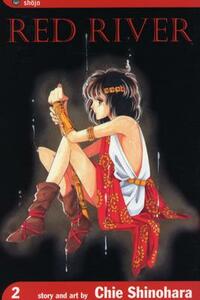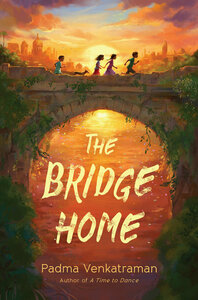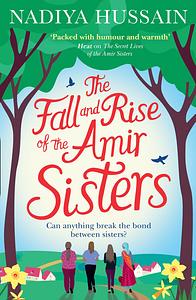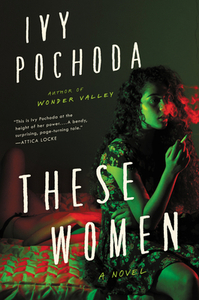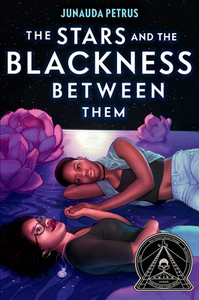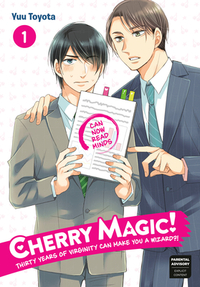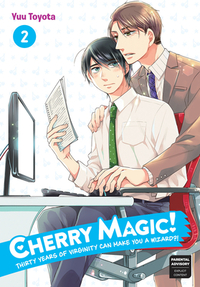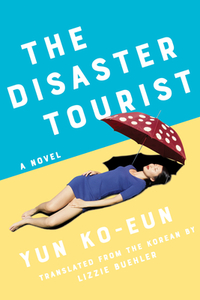You need to sign in or sign up before continuing.
Take a photo of a barcode or cover
loiscc's Reviews (313)
This was such a spine-tingling, rip-roaring, What-You-See-Is-What-You-Get kind of book and I absolutely loved it! The Emperor's Babe is a satirical tragedy, written in verse and it's set in London (Londinium) during the time of Roman occupation in the second century. Enter Zuleika, our spirited protagonist, a nubian beauty who's parents migrated to Londinium from Sudan. She's captured the attention of Emperor Septimus Severus, the only African to command such a high seat of power, and is forced to become his mistress.
This book possesses that magnetic outspoken signature that commonly occurs in Evaristo's books. I thought the fusion-like writing of Cockney Pleb meets Urban Slang meets Ancient Latin was anarchistic, stylistic and to be blunt, bloody brilliant!
This book had me in hysterics i.e. poetry party goes tits up.. but I also found it to be unsettling and heartbreaking.
Also shoutout to Venus who could give Rupaul a run for her money any day!
This book possesses that magnetic outspoken signature that commonly occurs in Evaristo's books. I thought the fusion-like writing of Cockney Pleb meets Urban Slang meets Ancient Latin was anarchistic, stylistic and to be blunt, bloody brilliant!
This book had me in hysterics i.e. poetry party goes tits up.. but I also found it to be unsettling and heartbreaking.
Also shoutout to Venus who could give Rupaul a run for her money any day!
The Bridge Home is best described as an uplifting middle grade novella about finding hope in the depths of despair. It raises awareness of the widespread poverty and homelessness affecting many young children in India today.
Viji and Rukku are poor low-caste sisters who live with their parents. Their father is an abusive man who constantly assaults their mother and by extension, them. Viji, the younger of the two convinces Rukku, who has a learning disability that they should run away from home and start a better life in the city. But they soon learn that life on their own can be tough, until they meet two fellow homeless boys; Arul and Muthu and learn of their stories of loss and suffering. The four children form a close bond and go on adventures, whilst also trying to survive each day.
This book does a fantastic job of bringing its characters to life and developing the recurring theme of friendship. I was moved by the injustice of the children's situation, but I also felt hopeful after reading this book as it not only challenges issues of caste-based discrimination and inequality but it also speaks about finding kindness and a sense of family in an otherwise unforgiving world.
Viji and Rukku are poor low-caste sisters who live with their parents. Their father is an abusive man who constantly assaults their mother and by extension, them. Viji, the younger of the two convinces Rukku, who has a learning disability that they should run away from home and start a better life in the city. But they soon learn that life on their own can be tough, until they meet two fellow homeless boys; Arul and Muthu and learn of their stories of loss and suffering. The four children form a close bond and go on adventures, whilst also trying to survive each day.
This book does a fantastic job of bringing its characters to life and developing the recurring theme of friendship. I was moved by the injustice of the children's situation, but I also felt hopeful after reading this book as it not only challenges issues of caste-based discrimination and inequality but it also speaks about finding kindness and a sense of family in an otherwise unforgiving world.
The Fall And Rise Of The Amir Sisters is about the lives of four very different sisters as they navigate their lives amidst the pressures of their well-meaning parents and as they try to reconcile their dual British and Bengali culture. It was a delicately told story exploring the bonds of sisterhood and the importance of family. This bookmade me feel both sorrow and joy. It felt tonally inconsistent in places but altogether, I thought it was a satisfyingly accessible and empowering read.
These Women is a crime thriller for the modern-day. It focuses on a serial killer case in South L.A., where victims are mostly female sex workers. The case began in 1999, at which point 11 murders were committed and 15 years later the killer is still at large, until the killings begin again..
Pochoda excels at creating intuitively thoughtful POV perspectives that make you empathise with the characters. This novel didn't feel very suspenseful for me, it was obvious that certain characters were going to die, but I love the razor sharp storytelling and the harsh realism of it.
I love how female relationships were explored in this book, particularly the mutual interest and admiration that Julianna and Marella have for each other and the conflict between Dorian and Anneke over their differing views of the prostitutes in their community.
This book inspires conversation on a wealth of topics, such as the marginalisation of certain communities and individuals, making it the perfect book club read.
These Women is a far-reaching book with a powerful feminist voice.
Pochoda excels at creating intuitively thoughtful POV perspectives that make you empathise with the characters. This novel didn't feel very suspenseful for me, it was obvious that certain characters were going to die, but I love the razor sharp storytelling and the harsh realism of it.
I love how female relationships were explored in this book, particularly the mutual interest and admiration that Julianna and Marella have for each other and the conflict between Dorian and Anneke over their differing views of the prostitutes in their community.
This book inspires conversation on a wealth of topics, such as the marginalisation of certain communities and individuals, making it the perfect book club read.
These Women is a far-reaching book with a powerful feminist voice.
Clearly I must be missing something because this book got such promising praise and reviews but I found it to be an unreadable mess.
The only positive that can be said about this book is the representation and the way in which it challenges patriarchal norms and subverts gender roles, creating a narrative that is unique and pushes the boundaries of the fantasy genre.
*Spoilers ahead;
Beyond the sentiment of this novel, I'm sorry but the story itself was pure tedium. I didn't care about any of the characters because the development was non-existent. I didn't feel like I learnt enough about Yeine or what life was like for her growing up in Darre to care about her struggles. Same goes for characters like Relad, who was just kind of there without any substantial contribution to the plot, besides three scenes. Scimina was just evil for the sake of it, she was a very one-dimensional villain who's only purpose was to antagonise the main character but beyond that, her characterisation, like with several other characters was skeletal at best, so I couldn't fully appreciate their importanceto the story.
I know that this is a plot-driven story and it seems like the author intended for it focus more on the action, which is fine but it came at the cost of adequately fleshing out her characters and compelling the reader to empathise with them, because without that, there's no incentive to remain invested in the action.
Also, it seems like Jemisin's idea of world-building constitutes heavily laden, sleep-inducing, page length exposition. There were also moments of exposition in places where it felt incongruous. For example, I didn't enjoy the section of the story where bits of dialogue was broken up in order to explain what scriveners are or some boring-as-hell history about some earth stone.
This book was nothing short of overly dramatic to the point where it felt like a parody that I couldn't take seriously. It tried too hard to sound dark and dire and convey the feeling of imminent doom. For example, Yeine learns that she has been fated to die as part of the ritual for succession of the new leader of Sky, and all throughout the book (after learning of this fate) we read about her lamenting her plight. We're reminded constantly of her fatal destiny, the repetitiveness of which felt absolutely jarring and it felt like we were supposed to mourn for her, we're meant to believe that she truly is in danger and really high stakes are involved but I didn't believe it at all. I've read too many books to know that either;
(a) some ass-pull of a deus ex machina will appear magically and save her or
(b) if she does die, then she will be resurrected.
As it would turn out, Yeine dies. But after her death she continues to narrate the story..? (at least try to shock us by making us believe she's actually dead) in a supposedly disembodied form and as predicted she gets resurrected and ascends to the universe of some shit with the other Enefadeh.
Finally let's talk about those god-awful sex scenes. Firstly, Yeine and T'vrill? Prior to their consummation, there was nothing to suggest this development in their feelings toward one another beyond a polite camaraderie and then they just have sex out of nowhere..? I'm not convinced. Also Yeine and Nahadoth, the latter an enigmatic god who's actions never made any sense to me whatsoever because the book so wanted to create this feel of mystery concerning his character. Their love affair felt inauthentic and unnecessary. It was supposed to feel like some sort of all-encompassing, desperate love but it had no bearing on the advancement of the plot, just purposeless heat to spruce up a sub-story.
I could go on but I've gone on long enough. A Hundred Thousand Kingdoms was sadly a melodramatic, underdeveloped, predictable and incredibly boring read.
The only positive that can be said about this book is the representation and the way in which it challenges patriarchal norms and subverts gender roles, creating a narrative that is unique and pushes the boundaries of the fantasy genre.
*Spoilers ahead;
Beyond the sentiment of this novel, I'm sorry but the story itself was pure tedium. I didn't care about any of the characters because the development was non-existent. I didn't feel like I learnt enough about Yeine or what life was like for her growing up in Darre to care about her struggles. Same goes for characters like Relad, who was just kind of there without any substantial contribution to the plot, besides three scenes. Scimina was just evil for the sake of it, she was a very one-dimensional villain who's only purpose was to antagonise the main character but beyond that, her characterisation, like with several other characters was skeletal at best, so I couldn't fully appreciate their importanceto the story.
I know that this is a plot-driven story and it seems like the author intended for it focus more on the action, which is fine but it came at the cost of adequately fleshing out her characters and compelling the reader to empathise with them, because without that, there's no incentive to remain invested in the action.
Also, it seems like Jemisin's idea of world-building constitutes heavily laden, sleep-inducing, page length exposition. There were also moments of exposition in places where it felt incongruous. For example, I didn't enjoy the section of the story where bits of dialogue was broken up in order to explain what scriveners are or some boring-as-hell history about some earth stone.
This book was nothing short of overly dramatic to the point where it felt like a parody that I couldn't take seriously. It tried too hard to sound dark and dire and convey the feeling of imminent doom. For example, Yeine learns that she has been fated to die as part of the ritual for succession of the new leader of Sky, and all throughout the book (after learning of this fate) we read about her lamenting her plight. We're reminded constantly of her fatal destiny, the repetitiveness of which felt absolutely jarring and it felt like we were supposed to mourn for her, we're meant to believe that she truly is in danger and really high stakes are involved but I didn't believe it at all. I've read too many books to know that either;
(a) some ass-pull of a deus ex machina will appear magically and save her or
(b) if she does die, then she will be resurrected.
As it would turn out, Yeine dies. But after her death she continues to narrate the story..? (at least try to shock us by making us believe she's actually dead) in a supposedly disembodied form and as predicted she gets resurrected and ascends to the universe of some shit with the other Enefadeh.
Finally let's talk about those god-awful sex scenes. Firstly, Yeine and T'vrill? Prior to their consummation, there was nothing to suggest this development in their feelings toward one another beyond a polite camaraderie and then they just have sex out of nowhere..? I'm not convinced. Also Yeine and Nahadoth, the latter an enigmatic god who's actions never made any sense to me whatsoever because the book so wanted to create this feel of mystery concerning his character. Their love affair felt inauthentic and unnecessary. It was supposed to feel like some sort of all-encompassing, desperate love but it had no bearing on the advancement of the plot, just purposeless heat to spruce up a sub-story.
I could go on but I've gone on long enough. A Hundred Thousand Kingdoms was sadly a melodramatic, underdeveloped, predictable and incredibly boring read.
The Stars And The Blackness Between Them is an afro-futuristic sapphic book with magical realism elements about two teenage black girls from different backgrounds who fall in love. Audre is a Trinidadian girl who gets sent to Minneapolis to live with her father after her mother catches her making out with her girlfriend. Mabel is a black American girl who has a unique style, loves Whitney Houston and playing basketball. The two girls become friends and through their growing affection for each other, they create a space to express their shared identity and love.
As fantastic as this book sounds, it fell completely and utterly flat for me. The only reason why I've awarded this book an extra star is because of the diverse representation, especially the way in which it represented my Caribbean heritage but that's really it. This book relies too heavily on the merits of its quirks and uniqueness. It tried to create a transcendental aura, steeped in spirituality and astrology but the writing was so superfluous, flowery and cringe-worthy that I felt disillusioned.
I have no idea what value Mabel's dreams of Queenie contributed to the plot, it had absolutely no bearing on the story and could've been cut altogether. Also the ending felt like a cop-out for me, providing an eye-roll of a convenient end to a boring story that offered only cursory development to begin with.
This book celebrates queerness and blackness in a heartfelt soul-searching way and is all about transcendence and spirituality but ironically, it just felt like words on a page to me and I felt no real connection to it.
As fantastic as this book sounds, it fell completely and utterly flat for me. The only reason why I've awarded this book an extra star is because of the diverse representation, especially the way in which it represented my Caribbean heritage but that's really it. This book relies too heavily on the merits of its quirks and uniqueness. It tried to create a transcendental aura, steeped in spirituality and astrology but the writing was so superfluous, flowery and cringe-worthy that I felt disillusioned.
I have no idea what value Mabel's dreams of Queenie contributed to the plot, it had absolutely no bearing on the story and could've been cut altogether. Also the ending felt like a cop-out for me, providing an eye-roll of a convenient end to a boring story that offered only cursory development to begin with.
This book celebrates queerness and blackness in a heartfelt soul-searching way and is all about transcendence and spirituality but ironically, it just felt like words on a page to me and I felt no real connection to it.
Cherry magic is chessy, guilty pleasure reading at its best. I was sold!
Adachi is an average, ordinary office worker who many people don't seem to take any notice of except for the fact that at the age of thirty he's still a virgin and this means he's developed the ability to read minds, simply by touching a person. In this way he discovers that the most handsome guy at the office, Kurosawa, has a huge crush on him and he's not quite sure how to handle it.
This boys' love manga is a guilty pleasure if ever there was one that would appeal to swooning girlish fantasies of someone seeking a lightweight and humorous manga.
Adachi is an average, ordinary office worker who many people don't seem to take any notice of except for the fact that at the age of thirty he's still a virgin and this means he's developed the ability to read minds, simply by touching a person. In this way he discovers that the most handsome guy at the office, Kurosawa, has a huge crush on him and he's not quite sure how to handle it.
This boys' love manga is a guilty pleasure if ever there was one that would appeal to swooning girlish fantasies of someone seeking a lightweight and humorous manga.
The Disaster Tourist is an anti-hero contemporary story about 33-year-old Yona Ko, from Seoul, a programming coordinator who works for the disaster tourism company, Jungle. Yona's job involves surveying places that have been ravished by natural disasters and then repackaging them as tourism hotspots.
Until one day, when she is asked to go on one of the company's holiday packages in Mui, Vietnam, a town renowned for the sinkholes that devastated the area in 1963. Whilst on her trip, Yona discovers truths about Mui and the people who live there that are kept hidden from tourists. She also stumbles upon a scandal that will challenge her in ways she could've never imagined.
The Disaster Tourist was a strikingly realist story. It was indicative of real life corruption that seeks to harm those most vulnerable in favour of making profit. Yona was a passive anti-hero who invoked both my empathy and my distaste. Her passivity reflects not only the quotidian tone of the story, but a general feeling of being desensitised to constant news of disaster and trauma.
Until one day, when she is asked to go on one of the company's holiday packages in Mui, Vietnam, a town renowned for the sinkholes that devastated the area in 1963. Whilst on her trip, Yona discovers truths about Mui and the people who live there that are kept hidden from tourists. She also stumbles upon a scandal that will challenge her in ways she could've never imagined.
The Disaster Tourist was a strikingly realist story. It was indicative of real life corruption that seeks to harm those most vulnerable in favour of making profit. Yona was a passive anti-hero who invoked both my empathy and my distaste. Her passivity reflects not only the quotidian tone of the story, but a general feeling of being desensitised to constant news of disaster and trauma.

